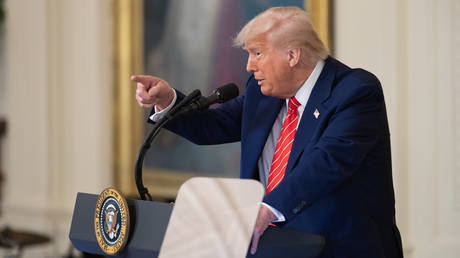Senate control guarantees many more judges for Democrats
Judicial and executive branch confirmations are of the few things the majority party has unilateral control over.


The Senate’s steady confirmation of President Joe Biden’s judicial nominees will continue for two more years, after Democrats retained the chamber Saturday.
With control of the House uncertain, but Republicans still favored, the legislative agenda for the next Congress remains up in the air. But the outcome in the Senate provides Democrats with at least one guarantee: that they will be able to unilaterally confirm Biden’s judges and executive branch nominees.
Going into the midterm election with Republicans favored to win the House, judges were a top prize that came with winning the Senate. Senate Minority Leader Mitch McConnell (R-Ky.) made clear that if Republicans took back the majority, the Senate would no longer be a “rubber stamp” for Biden’s judges. And after blocking former President Barack Obama’s Supreme Court nominee Merrick Garland in 2016, McConnell declined to say whether he would consider a Biden Supreme Court pick next year.
Senate Majority Leader Chuck Schumer vowed the Senate would continue its momentum on judges.
“Senate Democrats have been committed to restoring balance to the federal judiciary with professionally and personally diverse judges," he said in a statement. "With two more years of a Senate Democratic majority we will build on our historic pace of judicial confirmations and ensure the federal bench better reflects the diversity of America."
Biden’s pace of judicial confirmation has been largely on par with that of former President Donald Trump. Democrats so far have confirmed 84 judges, have 57 judicial nominees pending and 117 announced vacancies. Now the party won’t have to scramble to confirm more Biden judges during the upcoming lame duck session.
Democrats head into December’s Senate run-off in Georgia no longer needing to win in order to win the majority. But having 51 seats — instead of two more years of a 50-50 Senate — would make a significant difference. That even split of the past two years required Democrats to maintain perfect attendance in order to pass their signature party-line priorities and to guarantee confirmation of Biden’s nominees.
The threadbare 50-50 majority also meant that committees had an even number of Democrats and Republicans, requiring attendance from the GOP to move forward on nominees and forcing Democrats to take procedural additional steps on the Senate floor if a committee deadlocked on a nomination. If Sen. Raphael Warnock (D-Ga.) keeps his seat in Georgia, Democrats will be able to move nominees out of committee with a majority.
The additional seat would also pad Democrats' majority ahead of 2024 where they face a tougher map.
Sen. Brian Schatz (D-Hawaii) was relieved that the party is guaranteed to remain in Democratic hands, with or without Georgia.
“It means we can confirm judges, and other Biden nominees. It means we can continue to work on climate,” he said. “It means that at least one chamber will be run by adults."
Democratic Senate control will also mean fewer oversight hearings of the Biden administration, which Senate Republicans vowed to do in the lead-up to the election. And if Republicans do take back the House, the Senate can unilaterally block party-line messaging bills.
Divided government, of course, will also likely mean more legislative gridlock.
The Democratic majority next year will also play a significant role in determining how the party handles the upcoming lame duck session, particularly when it comes to reaching a deal with Republicans on a broader end-of-the year spending package. Pressure to confirm as many nominees as possible will subside. And a push from several Democratic senators to address the debt ceiling now looms.
In a New York Times op-ed, Sen. Elizabeth Warren called for raising the debt ceiling when the Senate returns to “block Republicans from taking our economy hostage next year.” She added: “Democrats should be aggressive in putting Republicans on the defensive, pressing hard on why they are blocking much-needed initiatives to help Americans.”












